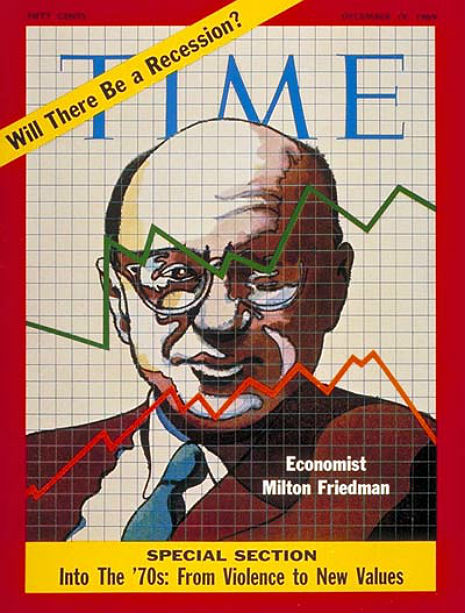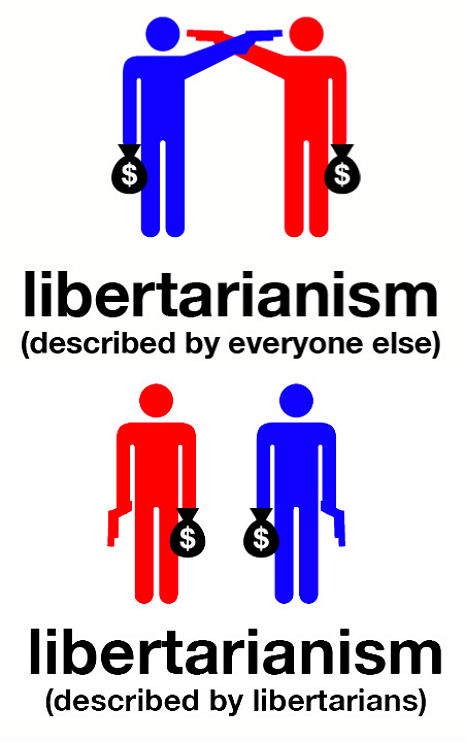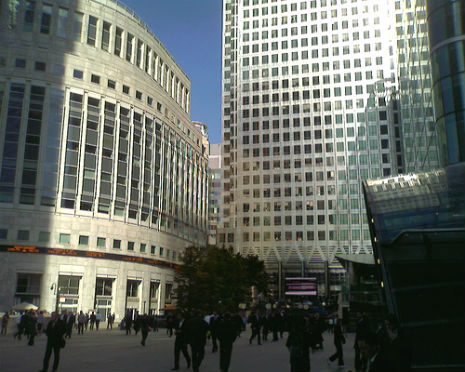
There’s a “must read” article that appeared on The Guardian’s website—ironically on the 4th of July, America’s national celebration of revolution—about a new-found interest in the ideas of Karl Marx among younger people. Going on in London this week is a five-day seminar/festival, organized by the Socialist Workers’ Party, called Marxism 2012. The festival is expected to draw several thousand people, many of them in their 20s and early 30s.
At the start of the piece, French Marxist thinker Jacques Rancière lays out a remarkably blunt truth to Guardian editor Stuart Jeffries: “The domination of capitalism globally depends today on the existence of a Chinese Communist party that gives de-localised capitalist enterprises cheap labour to lower prices and deprive workers of the rights of self-organisation. Happily, it is possible to hope for a world less absurd and more just than today’s.”
Aren’t Marx’s venerable ideas as useful to us as the hand loom would be to shoring up Apple’s reputation for innovation? Isn’t the dream of socialist revolution and communist society an irrelevance in 2012? After all, I suggest to Rancière, the bourgeoisie has failed to produce its own gravediggers. Rancière refuses to be downbeat: “The bourgeoisie has learned to make the exploited pay for its crisis and to use them to disarm its adversaries [Tea party dupes, he is talking about YOU—RM]. But we must not reverse the idea of historical necessity and conclude that the current situation is eternal. The gravediggers are still here, in the form of workers in precarious conditions like the over-exploited workers of factories in the far east. And today’s popular movements – Greece or elsewhere – also indicate that there’s a new will not to let our governments and our bankers inflict their crisis on the people.”
That, at least, is the perspective of a seventysomething Marxist professor. What about younger people of a Marxist temper? I ask Jaswinder Blackwell-Pal, a 22 year-old English and drama student at Goldsmiths College, London, who has just finished her BA course in English and Drama, why she considers Marxist thought still relevant. “The point is that younger people weren’t around when Thatcher was in power or when Marxism was associated with the Soviet Union,” she says. “We tend to see it more as a way of understanding what we’re going through now. Think of what’s happening in Egypt. When Mubarak fell it was so inspiring. It broke so many stereotypes – democracy wasn’t supposed to be something that people would fight for in the Muslim world. It vindicates revolution as a process, not as an event. So there was a revolution in Egypt, and a counter-revolution and a counter-counter revolution. What we learned from it was the importance of organisation.”
This, surely is the key to understanding Marxism’s renaissance in the West: for younger people, it is untainted by association with Stalinist gulags. For younger people too, Francis Fukuyama’s triumphalism in his 1992 book The End of History – in which capitalism seemed incontrovertible, its overthrow impossible to imagine – exercises less of a choke-hold on their imaginations than it does on those of their elders.
This is extremely significant, as Jeffries rightly points out. Even in America this is increasingly the case. Young people who have graduated from college with crushing amounts of debt, no health insurance, and who work in dead end jobs (if they can get a job at all) with no clear path to begin their careers are becoming quite interested in understanding what the hell happened. It’s really no surprise that they’ve started to google Capitalism’s greatest critic and read up on his ideas. Many people who joined in various OWS protests around the country were further exposed to Marxist critiques of Capitalism and Slovenian Marxist philosopher Slavoj Žižek who has become an unlikely intellectual rockstar to young, politically active American leftists who hang on his every word. These recent “converts,” if you will, have only just started to do more research and talk to and exchange ideas with other like-minded people.
As today’s disillusioned, but media-savvy 20-somethings begin their own inroads to influencing the culture, expect that music, film, TV, blogs and even our mainstream news outlets will become more friendly to the ideas of Marx and Engels, even if they aren’t always given credit for them. Ideas that 160 years after they were originally formulated, are starting to make so much sense to intelligent young people living through an age of Capitalism in deep crisis. Will American ever embrace “Marxism,” per se? That seems doubtful, of course, simply due to the cultural knee-jerk taboo around this particular “ism,” but still there is the rather pressing issue of Marxism’s historical inevitability:
Call it whatever you want to, but a situation where a mere 1% of the population control most of the wealth doesn’t seem like it’s going end so well for the ones doing the hoarding.
There’s a big problem that Capitalism increasingly faces: Because of the Internet, over the past fifteen years or so, the average person has easy access to information sources that they never dreamed of or knew existed in the first place. Before the mid-90s, it was much more difficult for the man on the street to be able draw a connection between the price of a particular drug and the net worth of the CEO of the pharmaceutical company that manufactures it. Today, they are beginning to understand that when a CEO of a pharmaceutical company is making $50,000,000 a year that they are paying a TAX ON THEIR OWN HEALTH for the sake of that rich asshole’s obscene salary with EVERY PILL THEY TAKE. Or consider the tax paid directly to the billionaire Walton family from EVERY product sold in a Wal-Mart. It’s a breath-taking con when you consider that ONE GODDAMN FAMILY basically gets to add their own personal tariff to every product sold in the world’s largest retail behemoth!
HOORAY FOR FUCKING CAPITALISM.
HOORAY FOR WALL STREET VAMPIRES.
Only a delusional idiot, the Royal family, the Walton family or a charter member of the 1%, would even wish for the current system to stand as it is. And the opinion of anyone who thinks America or Europe (or China or Russia for that matter) is still going to be doing business the same way in 2032 as it is done in 2012 should be dismissed with extreme derision.
Of course, the American people aren’t going to tip sales of The Communist Manifesto (the world’s #2 selling book of all time) to overtake The Bible any time soon, but then again they needn’t read a German philosophical treatise on how the price of a particular commodity is derived, either, when they’ve got folks like Jon Stewart, Cenk Uygur, Martin Bashir and Rachel Maddow to explain it to them.
In the same sense that ideas once common to the lunatic fringe of the John Birch Society have now achieved mainstream “respect” via Glenn Beck and Fox News, so will covertly Marxist ideas become mainstreamed as younger people coming of age with their eyes wide open in this shitty economy have their day. Eventually the major tenants of Marxism will arrive in the American marketplace of ideas in the guise of plain-talking, good old-fashioned common sense.
Back to Jeffries:
For a different perspective I catch up with Owen Jones, 27-year-old poster boy of the new left and author of the bestselling politics book of 2011, Chavs: the Demonisation of the Working Class. He’s on the train to Brighton to address the Unite conference. “There isn’t going to be a bloody revolution in Britain, but there is hope for a society by working people and for working people,” he counsels.
Indeed, he says, in the 1860s the later Marx imagined such a post-capitalist society as being won by means other than violent revolution. “He did look at expanding the suffrage and other peaceful means of achieving socialist society. Today not even the Trotskyist left call for armed revolution. The radical left would say that the break with capitalism could only be achieved by democracy and organisation of working people to establish and hold on to that just society against forces that would destroy it.”
Owen Jones is right. A violent revolution in America seems beyond a remote possibility, as well, whether from the left (not enough stomach for violence) or right (stomachs too fat for being able to inflict much violence). The future American revolution will be one won at the ballot box and through superior demographic numbers. As has been pointed out many, many times, in many, many places, the heyday of the reactionary right that began with Reagan is increasingly being seen in the country’s rear view mirror, demographically speaking. America will always have its conservative wingnuts, it’s just that we’ll have far fewer of them as the Tea partiers and Fox News viewers start to die off in the coming years. Democracy is a numbers game. It always has been.
Having toiled at a major daily newspaper myself, I won’t hold it against Stuart Jeffries that he was obliged to quote at least one “Debbie Downer” about the common, hackneyed misconception of what “Marxism” means, in this case Prof. Alan Johnson, of Edge Hill University, who thinks Communism, “[a] worldview recently the source of immense suffering and misery, and responsible for more deaths than fascism and Nazism, is mounting a comeback; a new form of leftwing totalitarianism that enjoys intellectual celebrity but aspires to political power,” on the World Affairs blog:
“The New Communism matters not because of its intellectual merits but because it may yet influence layers of young Europeans in the context of an exhausted social democracy, austerity and a self-loathing intellectual culture,” wrote Johnson. “Tempting as it is, we can’t afford to just shake our heads and pass on by.”
That’s the fear: that these nasty old left farts such as Žižek, Badiou, Rancière and Eagleton will corrupt the minds of innocent youth. But does reading Marx and Engels’s critique of capitalism mean that you thereby take on a worldview responsible for more deaths than the Nazis? Surely there is no straight line from The Communist Manifesto to the gulags, and no reason why young lefties need uncritically to adopt Badiou at his most chilling. In his introduction to a new edition of The Communist Manifesto, Professor Eric Hobsbawm suggests that Marx was right to argue that the “contradictions of a market system based on no other nexus between man and man than naked self-interest, than callous ‘cash payment’, a system of exploitation and of ‘endless accumulation’ can never be overcome: that at some point in a series of transformations and restructurings the development of this essentially destabilising system will lead to a state of affairs that can no longer be described as capitalism”.
That is post-capitalist society as dreamed of by Marxists. But what would it be like? “It is extremely unlikely that such a ‘post-capitalist society’ would respond to the traditional models of socialism and still less to the ‘really existing’ socialisms of the Soviet era,” argues Hobsbawm, adding that it will, however, necessarily involve a shift from private appropriation to social management on a global scale. “What forms it might take and how far it would embody the humanist values of Marx’s and Engels’s communism, would depend on the political action through which this change came about.”
This is surely Marxism at its most liberating, suggesting that our futures depend on us and our readiness for struggle. Or as Marx and Engels put it at the end of The Communist Manifesto: “Let the ruling classes tremble at a communist revolution. The proletarians have nothing to lose but their chains. They have a world to win.”
Read “Why Marxism is on the rise again” by Stuart Jeffries at The Guardian
Thank you, RU Sirius!


















